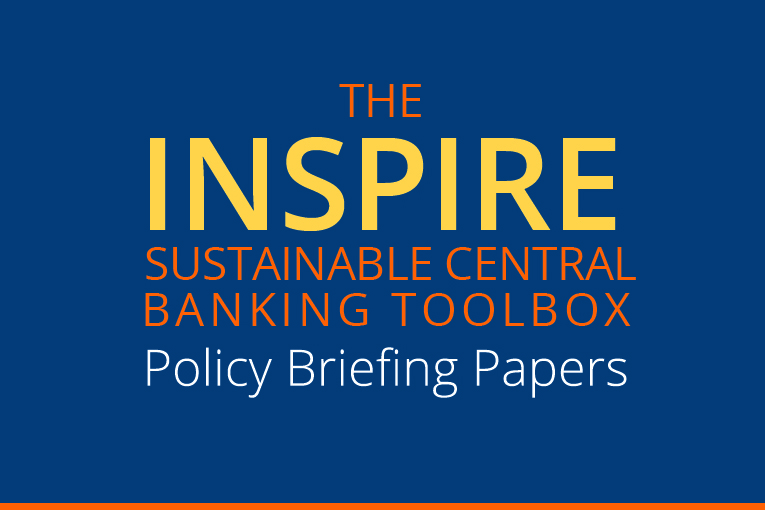Supporting the just transition: a roadmap for central banks and financial supervisors

Download
INSPIRE Central Banking Toolbox – Policy Briefing no. 10
Moving the economy to a sustainable model will have profound impacts, both positive and negative, on sectors and regions around the world.
Managed well, the net zero transition could lead to more and better jobs, and reduced risks from climate shocks. Managed poorly, however, it could result in stranded assets, stranded workers and communities – even stranded countries. In response, government policymakers have stressed the need for a ‘just transition’ that leaves no one behind.
This paper sets out why it is important for central banks and supervisors to actively support the just transition, suggests a three-step roadmap for achieving this goal, and explores policy options for aligning monetary policy operations and financial regulation with the just transition.
Main messages
- The just transition is a strategy to ensure that the greening of economies generates positive social impacts for workers and communities. It is increasingly seen as a key enabling factor for the delivery of climate goals: notably net zero and resilience to physical shocks.
- As a cross-cutting imperative, the just transition requires coordinated action across all fields of financial policy and practice. This includes the monetary policies and financial regulations implemented by central banks and financial supervisors.
- To date, social considerations have not been part of central banks’ approach to climate change. However, the income and regional inequalities generated by climate change and the potential side effects of the transition to a sustainable economy are of key strategic relevance.
- Inequality poses important challenges to central banks and supervisors, for example to financial stability, central banks’ mandates (e.g. growth), and public support for their independence.
- Employment creation is at the heart of central bank policies, and a just transition requires the creation of quality jobs in environmentally sustainable economic activities to replace positions lost in stranded sectors.
Recommendations
The authors set out a roadmap for central banks and financial supervisors to support the just transition, organised around three steps that should be taken in parallel:
- Assess: Central banks and supervisors need to better understand and assess the distributional consequences of climate change and the low-carbon transition. This requires integrating socioeconomic implications in their modelling toolkits, forecasts, regular economic surveillance and research.
- Advise: Governments have the primary responsibility to put in place the policy and financial frameworks to accelerate the just transition, but central banks should not be passive actors and can play a number of supporting roles.
- Act: Central banks and supervisors can directly support the just transition with monetary policy operations and financial policies, for example by prioritising employment objectives during the transition and including just transition principles into supervisory expectations.
The social implications of decarbonisation need to be anticipated at an early stage to facilitate the necessary scaling up of capital investment in this decade and beyond. This requires central banks and supervisors to quickly build up their capacities on these issues and put the just transition at the top of their agenda.
This paper is part of the INSPIRE Sustainable Central Banking Toolbox, which is designed to support central bankers and financial supervisors in calibrating monetary, prudential and other instruments in accordance with sustainability goals as they address the ramifications of climate change and other environmental challenges. The papers have been written and peer-reviewed by leading experts from academia, think tanks and central banks and are based on cutting-edge research, drawing from best practice in central banking and supervision.

